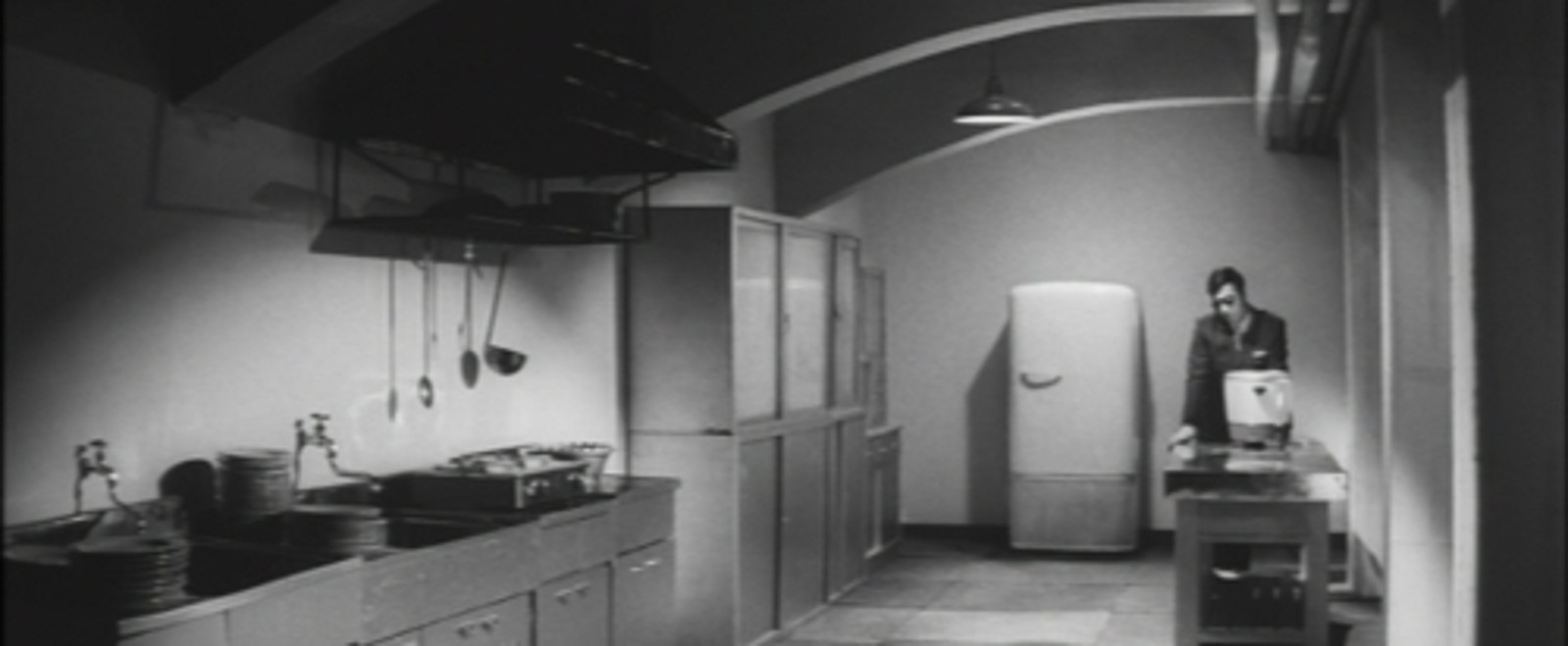 |
| BLADERUNNER (1982) |
The Replicants in BLADERUNNER tried to fabricate the past by collecting photographs of some distant past. They did not have actual memories of those moments captured in photographs. Then, why do they need to have these external artifacts? If I have a photograph taken 20 years ago, and if I have no recollection of having that particular moment depicted in it, then what does that prove? Did I lose the memory of the event? Or did someone fabricate the photograph using Photoshop? If you can believe what you see in a photograph rather than you remember, then are you a Replicant?
To me, the aethetic anachronism of THE RED SHOES is somewhat akin to obsession of the Replicants. That’s the obsession with the past that has never existed, the perfect re-creation of the time we want to believe we are re-living.
According to a recent survey, 63 percent of Americans believe that human memory “works like a video camera, accurately recording the events we see and hear so that we can review and inspect them later.” The Forgetting Pill Erases Painful Memories Forever, Jonah Lehrer, Wired
The new horizon of neuroscience is opening up the possibility for memory-erasure. Mechanism of memory consolidation and reconsolidation suggests that it may be possible to erase specific memory by administering the drug to inhibit reconsolidation of the memory. Though there is debate if such a treatment is possible, it is generally agreed that the memory reconsolidation, the act of remembering the memory and re-storing it, is a fragile and unreliable process. Many of us believe that memories are stored in our brain just like a videocassette, a separate entity that can be accessed without altering its form. However, in reality, it’s not there in our brain all the time and every time we remember something, the pathway of neurons is formed for this memory reconsolidation.
Therefore, it is susceptible to deformation by other mental forces in our neural networks. We have seen many instances of our memory being influenced by pride, shame, vanity, desire, hope, love, hate, or any other mental momentum. This unreliable nature of our memory is one of the reasons for our society’s dependencies to the external physical memories, especially when it comes to court cases and legal matters.
In another words, every time we remember something, we may choose the ‘wrong’ set of neurons for the job, because we want them that way. On the other hand, we want something concrete and reliable, so we pushed the technologies to the point anything can be reproduced hundreds of thousands times without losing its truthfulness. We pushed so hard, so complete, that now we don’t have to remember how to remember. In the age of Google search, hardcore blogging, rotten tomatoes, online product reviews, discussion forums and social network sharing, any ambiguity will be pointed out and corrected. An article by a prominent critic four decades ago can be full of factual errors, since he/she could not check the original material as easily as we do today. We never have such an erroneous text because it is prerequisite for anyone who wants to contribute anything to the world to have all the facts checked before you push “publish” button. Extreme obsession with authenticity and almost neurotic fetish for an original material hypnotized us to believe anything that has digitally processed to be superior even to the ‘original’.
These days, I rather cherish fading memories of my own experiences. I would rather entertain myself with the incomplete memories of the movies I saw long time ago. I remember the huge screen of LAWRENCE OF ARABIA in the Shinjuku theater, too huge to capture whole screen without shaking my head like a man in despair. I remember the showing of SHORT CUTS in Esquire Theater in Denver back in 1993, with 70mm print. A few minutes into the movie, the rarely-used projector broke the print. We waited for about 10 minutes, then the screening started again. We prayed for no more interruption and the screening went smoothly after that. I remember when I saw Naruse’s MOTHER in the old decaying theater in Ginza, where most of the audience were smoking during the screening. There was a group of Yakuza watching the movie, smoking endlessly. Their sholders started shaking near the ending of the film. Yes, they were all crying. The big, scary Yakuzas were crying watching Naruse’s movie.
Probably these my memories are incomplete and will change their shapes every time I remember it. But that’s OK. Because when I die, these memories will just vanish. They will die as my neurons die.

